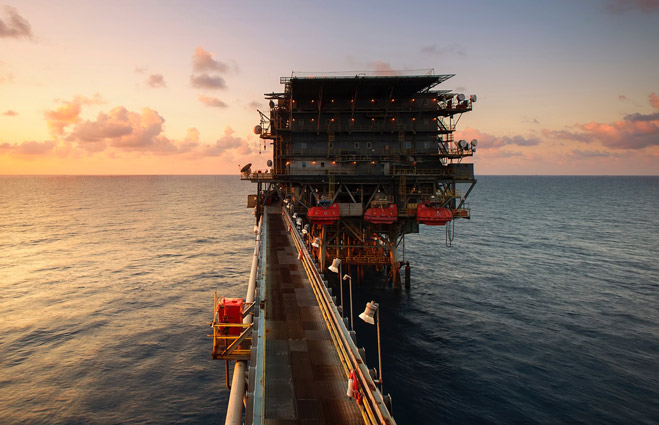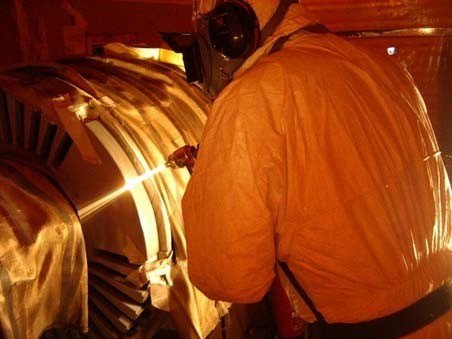Metal Spray Industry Articles

The aim of Green manufacturing is to minimise waste and implement sustainable processes to reduce any negative impact on the environment. Conserving natural resources is very important because the future of our planet depends on these resources being available.
The Metal Spray process offers many reasons as to why it should be classed as a Green manufacturing process. The Metal Spray process is used as a way to minimise the unnecessary use of natural resources by providing both protective coatings to prevent corrosion of metals associated with everything from Bridges, to Wind Turbines, as well as the ability to restore/remanufacture damaged parts to its original or better condition, thus eliminating the need to replace the component/part. Since its conception in the early 1900’s, the Metal Spray process has helped industries to minimise waste, save energy, reduce pollution and minimise corrosion.

Reducing waste while saving time and money is a sought-after requirement and is a necessity for modern industries. Metal/Thermal Spray processes provide the means to achieve these goals as they provide a fast turnaround when performing repairs on parts that have been out of tolerance during service, but are otherwise in good order. Repairs are much more cost-effective than purchasing new replacement parts.
Components may become out of tolerance due to:
- Abrasive, corrosive, or adhesive wear.
- Physical abuse (bent journals, scratches, dents etc.).
- Process defects (surface blemishes or casting imperfections).
- Machining or processing errors.
The Metal Spray process involves the deposition of metal/ceramics onto a surface. The spray deposit is a series of micro-sized, semi-molten particles of material being applied in a stream of high-pressure gas or arc. Upon impacting the surface, these particles form a splat, quench, freeze and bond (to both the component and each other) to form a thin 0.003” to 0.005” (75 to 125 u) layer of new material.
Metal/thermal spraying is a technology, which protects or extends the life of a wide variety of structures in the most hostile environments and in situations where coatings are vital for safety and performance. Thermal spraying is carried out in a wide range of anti‐corrosion and engineering markets. Typical applications include the spraying of ships, trawlers and other ocean-going vessels.
The anti‐corrosive properties of the metal spraying process are widely recognised in the shipping and marine industry, where steel super structures and vessels are subjected to very damaging corrosion from the sea and salt laden air of the world’s shipping and fishing industries.

In the petrochemical industry, Corrosion Under Insulation (CUI) in pipeline systems consumes a significant percentage of the maintenance budget. A large portion of this money is spent on expensive items such as external piping inspection, insulation removal and re-installation, painting and pipe replacements. CUI prevention strategies provide long term and reliable prevention of CUI that move towards inspection-free and maintenance-free piping systems and significant maintenance cost reductions.
Coating with TSA (Thermal Sprayed Aluminium), using Metallisation flame spray equipment is one method that a number of operators within the petrochemical industry have adopted. TSA is found to be a cost effective solution compared to other systems when reviewed over the lifetime of the facility.

Metallisation flame spray equipment has been used to protect a BP Clair Ridge offshore oil platform from corrosion. The 168 metre high platform is installed in the North Sea west of the Shetland Isles, Scotland.
Clair Ridge jackets have seven storage tanks, two drill water tanks and a base oil tank, in the Drilling Production (DP) jacket, and four diesel tanks in the Quarter Utility (QU) jacket. The project specified the jackets to be metal sprayed, to protect from corrosion, using Arc spray equipment. The system for the internal storage tanks was to be sprayed with 200–300 microns Thermal Sprayed Aluminium (TSA), the drill water tanks were to be sealed with aluminium silicone and the base oil and four diesel tanks were to be left unsealed.

RFI Screening Limited, specialist surface treatment engineers, has opted for Metallisation MK61 flame spray equipment to metal spray a 40 tonne generator rotor with fine silver.
The generator rotor, which is a combination of electrical, mechanical and manufacturing components, is regularly exposed to hard mechanical stress and high temperatures, while being subjected to electrical voltage and current. Over time this stress can lead to breakdown, costly repair and maintenance and possibly inconvenient downtime. To maximise the lifetime of of the generator rotor, RFI Screening was contracted to metal spray it, using the flame spray equipment.


